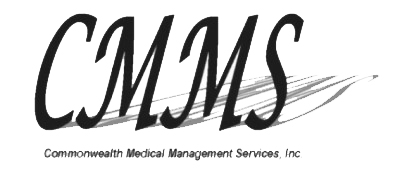
Hiring an NPP to Boost Practice Performance?
There May Be More To Consider…
Christy Whitehurst, COO, has done her research and provided a summary of her findings for you:
Thinking about hiring a Non-Physician Practitioner (NPP) to boost your productivity and income? Is this the right choice for your practice?
Many physicians have tossed around the idea of adding Non-Physician Practitioners to their practices. This may be a great idea for your practice but also may come with more headaches than it’s worth if you are not careful!
While doing your research, take note of the following basic requirements for billing under an NPP’s NPI or billing Incident-To (established visits billed under the physician’s NPI):
Billing under a Credentialed NPP for a reduced reimbursement
NPP’s can see new patients and established patients with new problems but they have to bill under their own NPI in these scenarios. When they bill under their own NPI, they must be credentialed with the carrier and will receive approximately 65 – 85% of the physician’s fee schedule.
Incident-To billing under the Physician’s NPI for 100 % reimbursement
For an NPP to bill “Incident-To” for 100% of the physician’s allowed amount, he/she must bill under the physician’s NPI. To do so, the billing physician must provide direct supervision, assistance and direction to the NPP. Medicare defines “direct and/or immediate” supervision as the provider being physically present in the office suite. Commercial carriers have their own set of rules and may differ from the Medicare requirements. It is best to check with each carrier to see what their rules are but it is safe to say that if you stick with the Medicare guidelines, you are covered.
Acute problems do not qualify for Incident-To billing under the Medicare guidelines. Chronic problems, however, do qualify for Incident-To after the physician has seen the patient and determined the plan of care (POC).
The above rules may or may not apply to non-Medicare payers. You will need to check with each payer for their specific rules.
Other things to consider….
Pros:
- Adding an NPP will allow the physician to focus his/her time on the more complicated cases and new patients while the NPP focuses on the follow-up visits.
- The use of an NPP typically results in the ability for a practice to increase their daily patient volume.
- Increasing your patient population will also allow you to receive higher capitation payments in your managed care markets.
- Even if the NPP bills with his/her own NPI for a reduced reimbursement, he/she is able to see the follow-up patients allowing you to expand your patient population.
- All of the above should result in higher practice revenue!
Cons:
- Credentialing time and cost: Adding NPPs could likely double, triple, etc. your credentialing costs. While some carriers do not credential mid-levels, others do. If you need to bill the carriers with the NPP’s NPI number (non Incident-To billing), you will need to credential the NPP.
- Reduction in reimbursement will occur unless you meet all requirements and bill Incident-To. Medicare and other insurance carriers will reimburse as low as 65 – 85% of the physician fee schedule if you bill under the NPP’s NPI number.
- Make sure you have factored in additional costs to add additional providers. Costs such as the NPP’s salary, malpractice insurance, additional billing staff and training should be analyzed.
- Make sure you understand the Medicare and state laws that apply to NPP billing and what the NPP is licensed to do in your state.
- Make sure you understand how the commercial carriers expect you to bill and their reimbursement policies.
- Do you see patients in a hospital setting? Incident-To billing is not allowed in the hospital so you wouldn’t be able to utilize the NPP for this type of billing in that setting. You can do “Shared-Visit” billing in the hospital setting but this requires that you and the NPP see the patient on the same day. If both of you do not have a face-to-face visit with the patient on the same day, the NPP will need to bill under his/her own NPI for a reduced reimbursement.
(Reference: The Coding Institute. Non-Physician Practitioner Handbook 2015. Durham: 2015; Print.)
